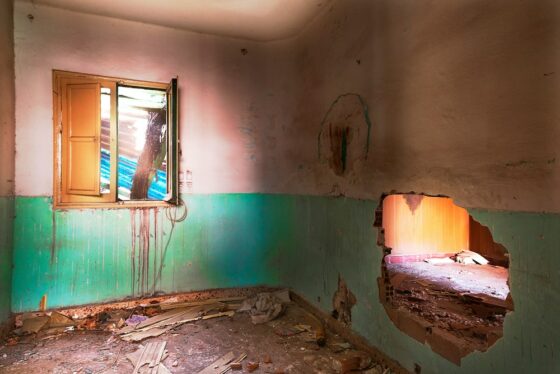Hidden Defects
Imagine you’ve just bought a house. It’s very exciting, of course, but after the purchase, you discover defects in the house that you previously hadn’t noticed. Then you’re dealing with hidden defects. How do you solve this? Or even better, how can you prevent this?
Read all about solving and preventing hidden defects in this article.

What are hidden defects?
These are defects in the house that you, as a buyer, were unaware of during the purchase.
If a house for sale contains defects, these should be reported. Both the buyer and the seller have duties in the purchase or sale of a home:
- The seller has to disclose. He or she must mention known defects during the sale of the house.
- The buyer has to inspect. This means that you must investigate the condition of the house you are buying as thoroughly as practically possible. One way to fulfil this inspection duty is to conduct a technical inspection. If much more maintenance is required than expected, you can decide to refrain from buying the property.
Common hidden defects
A few examples of common defects are:
- Old or subsided sewage systems
- Leaks
- Technical installations that do not function properly, such as the central heating system
- Beams and/or floors that turn out to be rotten
- Poor window frames
- A blocked chimney flue
Watch out for these clauses in the purchase agreement
Do you suspect that there are defects in the house? As a buyer, you can include a technical inspection condition in the purchase agreement. This condition means that as a buyer, you can cancel the purchase if severe hidden defects are found in the house or if the repair costs are much higher than agreed.
However, the seller can also include several clauses in the purchase agreement, thereby protecting themselves against liability for certain defects. Therefore, pay close attention to these possible clauses in the purchase agreement:
- Asbestos clause: This clause indicates a chance of asbestos in the house. You cannot hold the seller accountable if you find asbestos in the house after the purchase.
- Age clause: By agreeing to this clause, you, as the buyer, acknowledge that the house is old and that the construction quality may, therefore, be lower.
- Non-occupancy clause: If the seller has never lived in the house, they can include this clause. It states that they are unaware of any potential defects in the house and, therefore, are not liable for them.
What if there are hidden defects in your new house after the transfer?
If defects are discovered in your new house after the transfer, it’s disappointing. In principle, the costs of fixing them after the transfer are the buyers’ responsibility.
However, there are situations where you can hold the previous owner accountable. In such cases, the former owner must repair the defect or pay for the repair costs.
You can hold the seller accountable in these situations:
- When you cannot use the house normally due to a defect, think of a leakage, for example.
- When the seller was aware of the defect but did not report it, the seller breached their duty to disclose. Note that this is often difficult to prove; unfortunately, the burden of proof lies with the buyer.
Tip: The better you fulfil your duty to inspect as a buyer, the better you can prevent being unaware of any potential defects. One way to fulfil this duty is to carry out a technical inspection.
Deadline for reporting hidden defects
It’s good to know that if you discover a hidden defect after the transfer, notify the seller in writing as soon as possible. Usually, this must be done within two months at least.